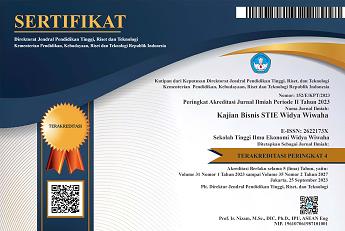FAKTOR-FAKTOR YANG MEMPENGARUHI KECURANGAN AKADEMIK PADA PERKULIAHAN ONLINE
STUDI PADA MAHASISWA AKUNTANSI UNIVERSITAS SARJANAWIYATA TAMANSISWA
DOI:
https://doi.org/10.32477/jkb.v29i1.235Keywords:
Online Cheating, Situational Factors, Academic Factors, psychological FactorsAbstract
The spread of the covid-19 disease outbreak has brought urgent changes in various sectors. The governments advice to stay at home and keep your distance should be followed by a change in learning methods from face-to-face to online learning. The purpose of this study is to explore the extent to which factors such as situational factors, academic factors, and psychological factors can influence students academic cheating behavior during online learning, and to propose strategies to promote academic integrity in higher education when learning is conducted on an ounce line.This type of research is quantitative research with a descriptive approach. The samples studied were all S1 Accounting Faculty of Economics which is still active in the even semester of The Academic Year 2019/2020 who had taken the online exam and learning online with a sample number of 153 students using purposive sampling techniques. Data analysis techniques in this study using PLS (Partial Least Square) 3.0 software. The results of this study showed that psychological factors and academic factors have no significant effect on online cheating. But situational factors as intervening variables have a significant effect online cheating









